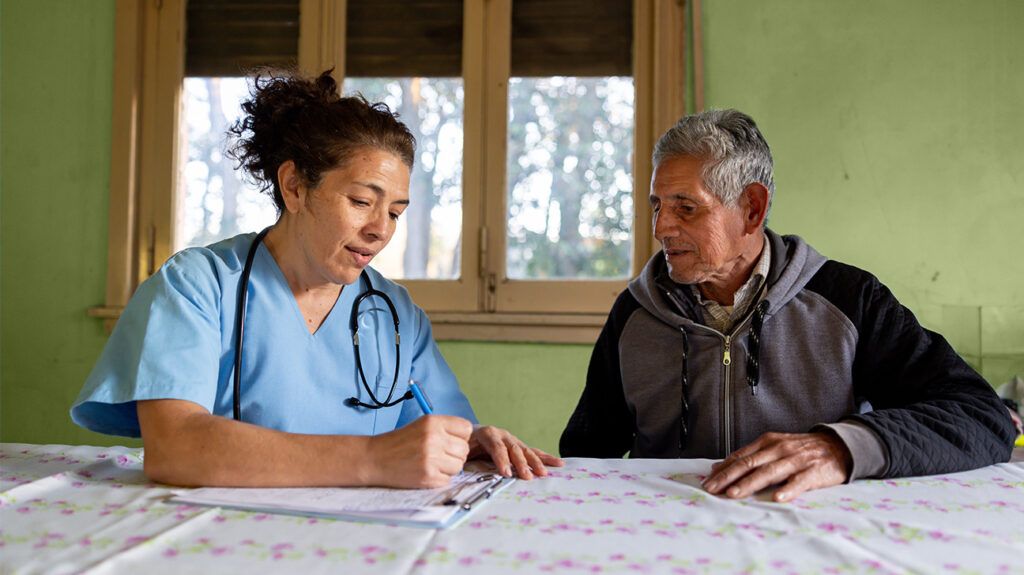 Share on Pinterest
Share on Pinterest- About 12.2 million new strokes are diagnosed each year.
- One in four stroke survivors will experience another stroke.
- Stroke survivors are at an increased risk of developing major heart issues, such as heart attack.
- A new study says that type 2 diabetes medications GLP-1 agonists and SGLT2 inhibitors may help lower a stroke survivor’s risk of experiencing a subsequent stroke, heart attack, or death, compared to those who did not take these medications.
According to the World Stroke Association, one in four adults over the age of 25 will have a stroke during their lifetime, and there are about 12.2 million new strokes diagnosed each year.
Previous research shows that one in four stroke survivors will experience another stroke, and people who have a stroke are at a higher risk of developing major heart issues during the first month after their stroke, such as heart attack — clinically known as myocardial infarction.
For this study, researchers analyzed medical data for more than 7,000 adults who had an ischemic stroke — the most common type of stroke caused by a blood clot in the artery that brings blood to the brain — between January 2000 and June 2022.
Researchers looked at whether or not study participants had been prescribed either a GLP-1 agonist or SGLT2 inhibitor medication after their initial stroke.
“GLP-1 receptor agonists and SGLT2 inhibitors are two types of medications often used to help people with diabetes manage their blood sugar,” M. Ali Sheffeh, MD, an internal medicine resident at the Henry Ford Medical Center in Warren, MI, research scholar in the Cardiovascular Department at the Mayo Clinic in Rochester, MN, and lead author of this study explained to Medical News Today.
“They also have benefits for heart and kidney health, which has led to their use in patients with certain heart conditions or those at risk of cardiovascular disease,” Sheffeh continued.
“These drug classes have been studied over the last few years in randomized clinical trials and have shown better cardiovascular outcomes in patients with obesity, diabetes, heart failure, and chronic kidney disease,“ he added.
After an average follow-up of three years, Sheffeh and his team found that stroke survivor participants taking either a GLP-1 or SGLT2 medication had a 74% lower mortality risk and 84% lower risk of having a heart attack, compared to those not taking these drugs.
And participants taking either medication also had a decreased risk of experiencing a secondary stroke, compared to those not taking them.
“The current guideline for stroke prevention recommends the use of blood thinners, controlling blood pressure, and cholesterol lowering medication in addition to lifestyle modification in order to decrease the risk of a second stroke,” said Sheffeh.
“If our findings are externally validated, that might lead to changing practice and we might start prescribing these medications for patients with stroke to prevent future events,” he pointed out.
After reviewing this study, Sandra Narayanan, MD, a board-certified vascular neurologist and neurointerventional surgeon, of the Pacific Neuroscience Institute at Providence Saint John’s Health Center in Santa Monica, CA, who was not involved in this research, told MNT that she was surprised at powerful the positive response was for both agents to reduce the likelihood of achieving the composite endpoint — mortality, heart attack, or recurrent ischemic stroke.
“Two major barriers stroke and myocardial infarction patients struggle with are compliance and education,” she continued.
Furthermore, “survey-type research addressing prescribing practices might be informative to assess knowledge among prescribers — internists, family physicians, endocrinologists, and stroke neurologists — before and after dissemination of disease-specific studies,” said Narayanan.
MNT also spoke with Mir Ali, MD, a board certified general surgeon, bariatric surgeon and medical director of MemorialCare Surgical Weight Loss Center at Orange Coast Medical Center in Fountain Valley, CA, about this study.
“I thought it was an interesting study showing another benefit of these medications, so it’s always good to see medications that are helping,” Ali said.
As this study showed a potential benefit of these medications, Ali said it was hard to determine at this point how might GLP-1 and SGLT2 medications be positively impacting the heart.
“It would be interesting to see how this is helping patients — if it is an independent effect of just the medication itself, or is it secondary to weight loss or better for glucose control,” he added. “A study designed to kind of tease out these details would be helpful.”
